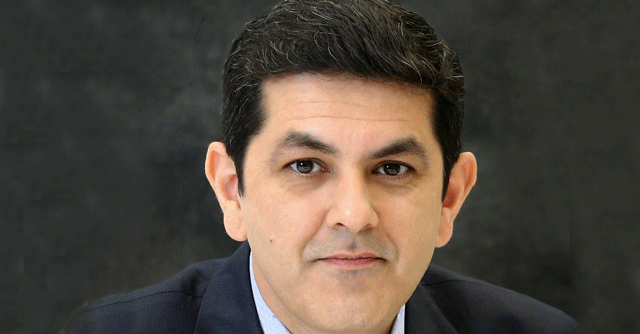
Web3 is about intelligent cloud and intelligent edge, says Rajiv Sodhi

The blockchain and crypto community might say that the future of the Internet is decentralized and serverless, but Microsoft is unfazed. In an interview, Rajiv Sodhi, chief operating officer (COO) of Microsoft India, spoke about the importance of the third generation of the Internet (web3), how 2021 shaped the cloud ecosystem in India and how the company is adapting its strategies to government regulations in India. Edited excerpts:

How has the cloud ecosystem shaped up in 2021?
The total public cloud services market (in India) was about $3.5 billion in 2020, and is expected to reach close to $10 billion by 2025. That’s a very strong growth. And it's not just dominated by what was earlier, maybe the IT, technology industry and a few other pockets. What you're seeing now is it's across the board. The other big trend you see is around hybrid work. We all live that. It's causing a fundamental shift in not just where we do the work and what kind of work we are doing, but also why we are doing that work.
We are also seeing a rise of citizen developers. That's a big trend where I think the cloud will again play a central role. At the end of the day, this whole need for innovation and digital transformation is creating a massive need to create applications. In fact, there will be over 500 million applications created in the next five years. So, you will see the majority of citizen developer platforms — the low code, no code platforms — so that everybody can create what they need for their business, without necessarily knowing a lot of code or being technical.
How have your own cloud services evolved because of what we see today and what we expect in future?
At the end of the day, Microsoft is a platform company. We always build the platform on which other companies build their innovation. So, when Microsoft started as a company the platform was Windows, but today, it is Azure. We've actually brought that thinking into the cloud world as well. And not just Azure, Teams is the newest platform. It's not just an application or an offering for remote meetings, it's fast becoming the user interface (UI) for the enterprise.
At the end of the day, as people are using Teams to connect with colleagues and employees it's also becoming a framework where your applications can reside, so that you can use that same UI to not only collaborate and work with your colleagues, but also use the application without leaving the interface. As we go forward, we definitely see a trend of collaborative applications coming in.
How are you shaping your strategy based on the regulatory moves India is making?
We work very closely with not just the global standards, but even the local governments. We make sure that we are in compliance with whichever country we are operating in, and most certainly India as well. We were the first cloud provider to get MeitY certification. We are complying with the local norms. You look at the other regulations that we have, whether it is on privacy, on ISO, on credit card processing, we continue to make sure that we are the most certified cloud that is out there.
Now, this is a pretty complex topic. It's not that you're getting one certification, and you're done. Azure itself has over hundreds of different certifications that are there. The key is to provide transparency to how you're working with various regulations. As they come out, that's where the trust centre plays such a role. We publish our certification roadmap for all the various different compliance, and regulatory developments that keep happening because it's a fast-evolving landscape.
How do you see your services evolving for the Web3 ecosystem that’s being built today?
We continue to invest in the future on the platform. I think Web3 is going to have a pretty significant impact, on not just India, on the world. Blockchain, crypto will play an important role. The new set of open protocols and services that are getting developed are going to be key in how Web3, or whatever we call it, eventually shapes up. Our objective is to make sure that as these innovations happen, we provide this through our platform.
But what about the fact that Web3’s idea of decentralization is against centralized servers, data centers, etc.? Doesn't that trouble you?
I would say that's absolutely fine. If you look at our outlook on how we work with customers, we've always said it's about the intelligent cloud and intelligent edge. As we all know, there is a proliferation of devices, whether it is IoT, whether it is edge, the edge computing market is growing pretty fast. 5G is going to have a play.But as this gets decentralised, one thing we've learned is that data has gravity--wherever data is getting introduced, which is obviously the edge, computing is going to move there.
I totally agree with you that it is going to get more decentralised, it's going to get more distributed. That is why this capability of hybrid, multi-cloud and multi-edge is so critical for customers, because every customer scenario is going to be different. Our job and our objective as a platform company is to give a platform to the customer where it works in each of these scenarios.
So whether you're talking about our public cloud data centre, or you're talking about your own server, or you're talking about a remote factory somewhere, or a device that you are creating, or a sensor that you're running in your machine, our job is to make sure we allow you to capture the data signal, run the analytics on top of it, and then provide you the insight.
